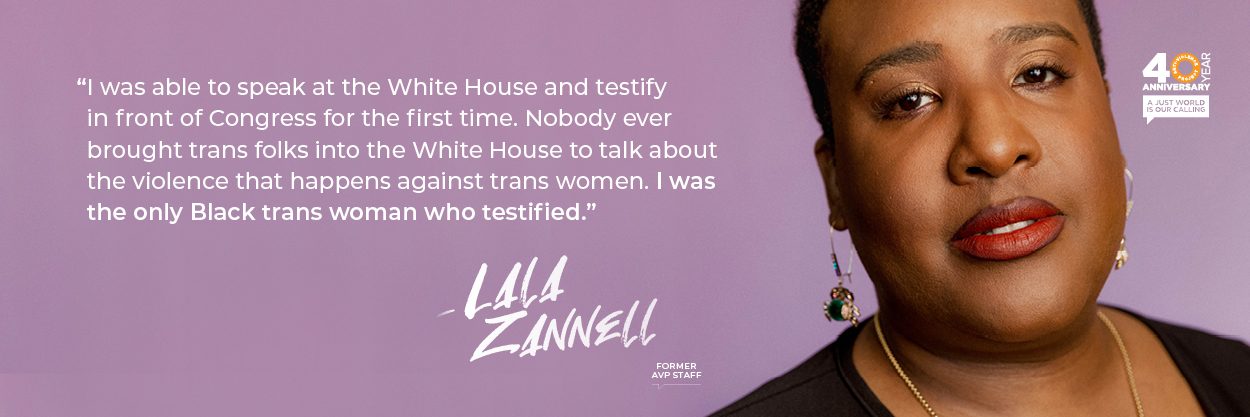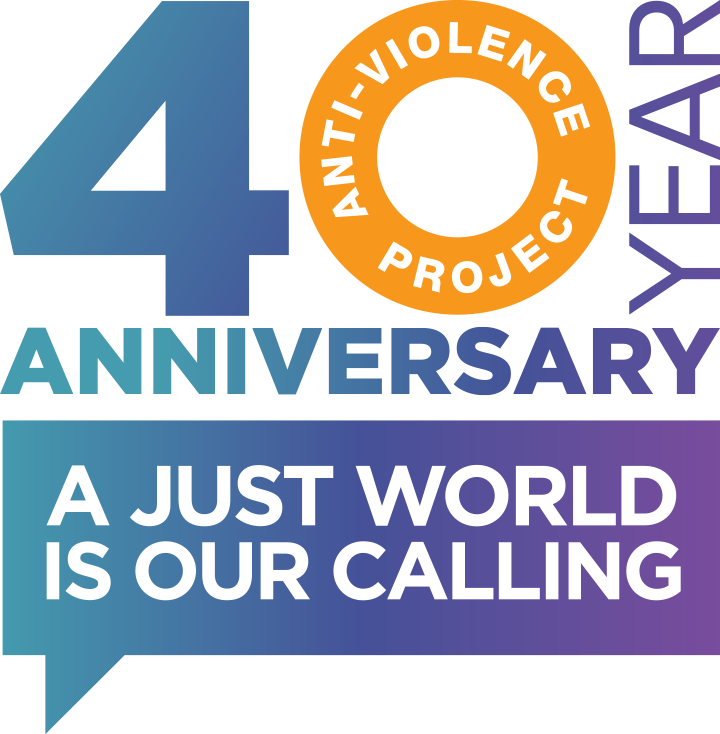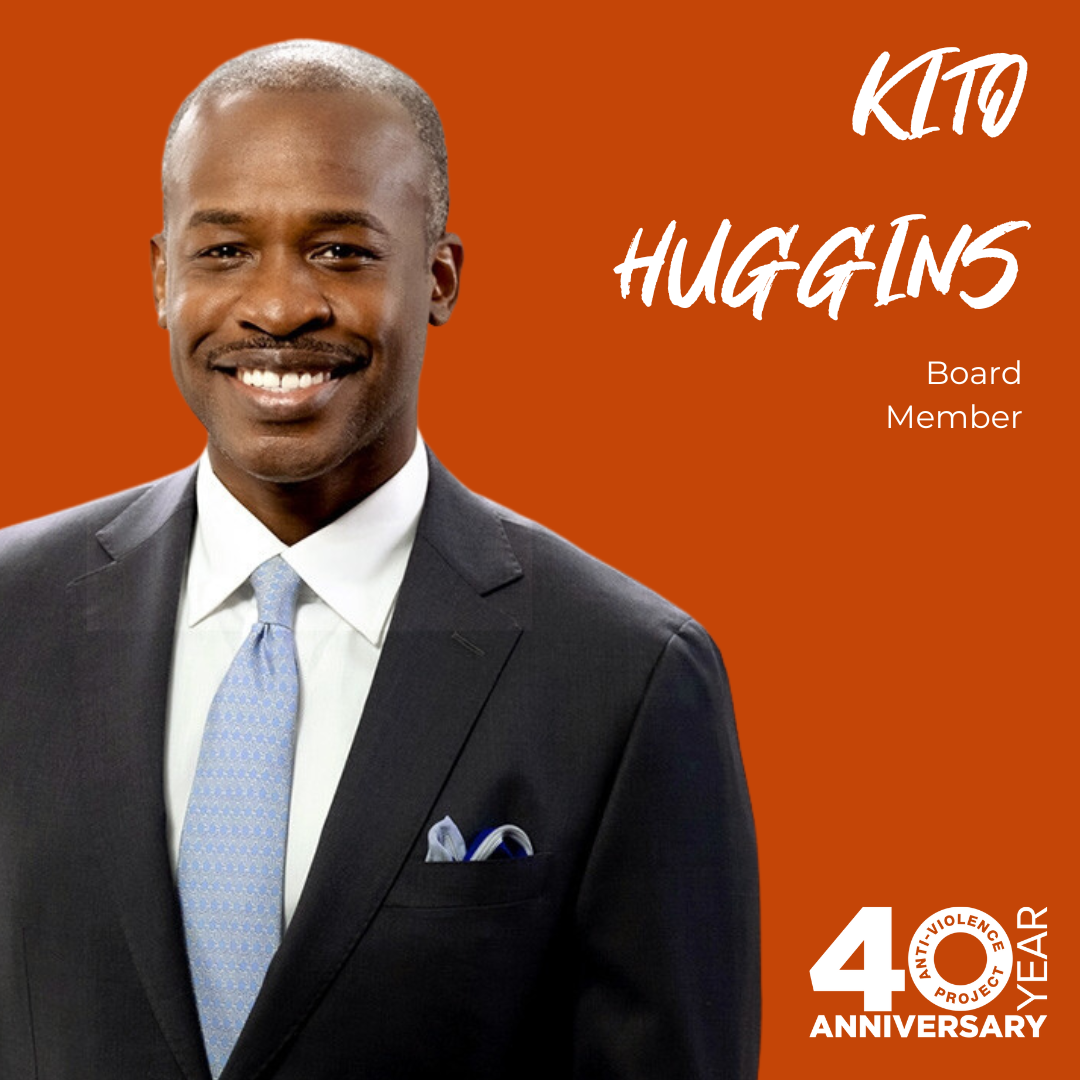
This interview has been shortened and condensed for clarity.
LaLa Zannell is a Black trans woman with over a decade of experience as a community organizer and advocate for trans and queer livelihood. LaLa’s experience with AVP ranges from seeking support to becoming an intern, then being hired as a Front Desk Assistant, a Community Organizer, and finally, as a Lead Organizer. With over eight years of experience at AVP, LaLa helped found AVP’s Trans and Gender Non-conforming Leadership Academy and led the effort to develop Solutions Out of Struggle: Transgender and Gender Non-conforming Policy Brief for New York City. As the Trans Justice Campaign Manager at the ACLU, Lala continues to serve the community on a national scale.
In 2015, Lala spoke at the White House as part of the first Women’s History Month briefing that included transgender women. LaLa also participated in the 2015 landmark Congressional Forum on Violence Against Transgender People. Read about Lala’s journey with AVP, and how Lala helped advance AVP’s work with and for the trans and gender non-conforming community.
How did you first get involved with AVP?
Wow. It’s eons ago. Probably about eight years ago when I first moved to New York City and I was in the middle of being in a violent intimate partner relationship. I went to the Center and did an intake there, and they gave me a referral to go to AVP. I went to AVP the next day. I met with Jase who was my counselor at the time, and we just did an intake. They were asking me so many questions that no one had ever asked me before. Even friends in my life didn’t have the language or the ways of support that the counselor did at the time.
I was just really overwhelmed. Why are you being so nice to me? What’s the catch? I just couldn’t believe that they actually were providing help in a situation that other people in my life just were like, “It happens. Accept it.” Just things that, commonly, people normally get in those situations.
Tell us about your role as a Lead Organizer for AVP?
Prior to even coming to AVP, I was already in the community. I was a part of Ballroom. I had chosen children. I was in the nightclub life. I was an entertainer, so I already had connections to the community.
I just wanted to use that to bring in folks who needed these services, as well as shift AVP’s direction to make sure that this was the place that trans folks wanted to come, particularly trans women of color– where they felt comfortable, where they felt like this was a place where they belonged. And being pivotal in that was very important to me, as well as always responding to violence locally, statewide, and nationally. We did a lot of reaching out to the media and telling them, “Stop dead-naming people.” Being able to be pivotal in the way that today, media in the country talks about the lives of trans folks murdered.
But I still felt like AVP needed more. They needed more trans representation within the organization and in the outward appearance in the world. That’s when I started to lobby and rally for the Trans and Gender Non-conforming Leadership Academy, which was something I’d been working on for over seven years prior to it even coming into formation at AVP. There needed to be something that was for my community that would empower them, help them learn how to organize and compensate them.
Through all of that work, I was able to speak at the White House and testify in front of Congress for the first time. Nobody ever brought trans folks into the White House to talk about the violence that happens against trans women. I was the only Black trans woman who testified before Congress. Through that work and through my leadership and my outreach ability, I got the role of Lead Organizer.
Can you speak about your most memorable experience with AVP?
There are just so many. If I will say one, it’s memorable, but I think it’s just like “Wow, where I was working!” It was the one time I was in Victoria Cruz’s office in my earlier stages of beginning to work at AVP. She opened up her drawer and she had all these old pictures from Stonewall. She actually had a piece of board where they used to write the drink specials. That actually was from Stonewall. And I was just thought, “Wow, this is so cool and dope, I work with a person that is really a pioneer, someone who has survived something.”




